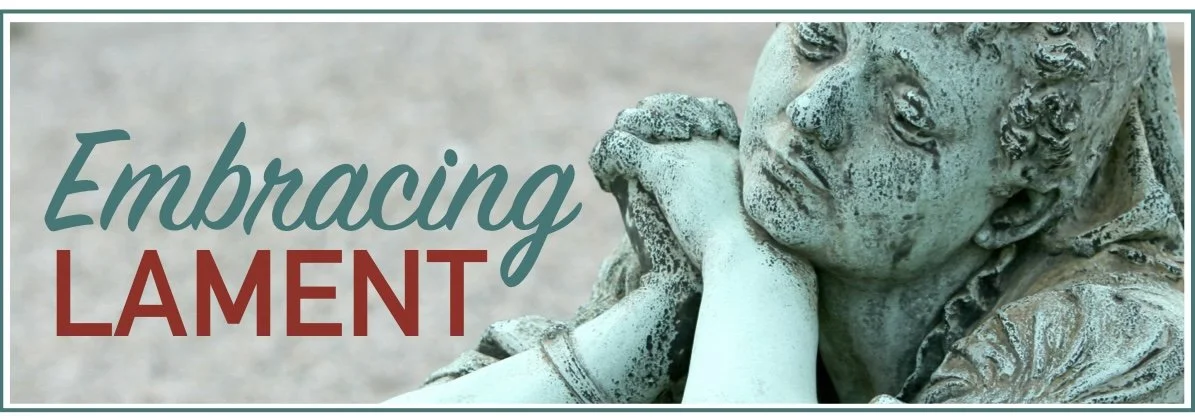Learning to pursue a practice I’ve been talking about for years
For a couple of years now, I’ve been talking and writing about lament. I posted in this space a whole series of “Monday Meditations” around the theme of lament. My church invited me to lead an elective class on lament, and tomorrow I’m finishing a four-week Bible study of lament with my Thursday-morning group.
It would have been easy for me to fool myself into thinking I’m becoming an expert on lament.
But several days after Evelyn passed, the need for lament hit me harder than ever before. It came in a thoughtful card from my friend Shannon, who has learned for herself how to practice lament. And she put her learning to use by writing a prayer of lament I will keep and cherish for a long, long time.
Offering a perfect prayer
Here's what she wrote.
Merciful God,
Our hearts are heavy for Mark.
We grieve the loss of a beloved wife,
a cherished friend,
and a life that has been slowly slipping away for so long.
Lord, you know the ache that words can’t reach—
The years of quiet sorrow,
The long good-byes,
The moments of clarity that gave way to confusion.
We lament the pain of Alzheimer’s—
The stealing of memories,
The dimming of her laughter.
We cry out to You, O Lord, for all that was lost in those years.
Yet even in our sorrow, we thank You—
Thank you that her mind and body are now made whole in your presence.
Thank you that every moment of suffering has passed.
Please bring comfort to Mark who has carried this burden day by day.
Please surround him with your presence when loneliness sets in
or grief encompasses him.
In the name of Jesus,
Amen.
My pulse quickened and my ever-available tears once again spilled down my cheek as I read her prayer. She nailed it. She perfectly described the heartache and the struggle I had experienced, the immovable wall of frustration and disappointment I had hit again and again.
Lament was what I needed.
And it occurs to me that each of us need it at least once in our lives. (And if we need it only once, we’re lucky.) The fact is, we all face people and problems that probably won’t change.
Some believers seem to think they’re not supposed to feel bad about life’s impossibles. “God is good all the time,” they chirp. And while that’s true, there’s nothing good about a flat tire or a full-term miscarriage. Or Alzheimer’s disease.
Acknowledging life’s bad while affirming God’s goodness is the secret of lament.
Exploring four elements
Shannon is a staff member at the church outside Indianapolis where Mark Vroegrop was pastor when he wrote his award-winning book, Dark Clouds, Deep Mercy: Discovering the Grace of Lament. According to Vroegrop, biblical lament includes four elements:
Turning to God. (Instead of turning away from him in difficult times.)
Complaining to God. (That’s right. Specifically and painfully rehearsing in God’s presence exactly what has gone wrong in your life.)
Asking God for help. (Telling God, again specifically, what you need him to do.)
Trusting God. (Allowing him to sort out the mess in his way and in his time, even when we don’t understand what he’s doing or why.)
Analyze her prayer, and you’ll see it contains all four of these elements.
Pursuing a path to health
According to Vroegrop, the Psalms of Lament show that God’s OK to hear our grief. And laying it out before him is not only a spiritual exercise but also a great path to psychological health.
There’s nothing more disabling than exhausting oneself trying to contain the ocean in a bucket or move a hillside with a spoon. While we believe God can do the impossible, sometimes he prefers to let us wrestle with it and learn how to trust him anyway.
That’s not easy, and so we lament. As long as we’re crying out to God, we’re not walking away from him and his gracious care. He helps us discover how to face another day.
Shannon reminded me of the value and the beauty of putting words to an ancient practice too many of us have missed. I’m glad she has learned how to use lament. It was one more element helping me move forward through the valley of grief.

